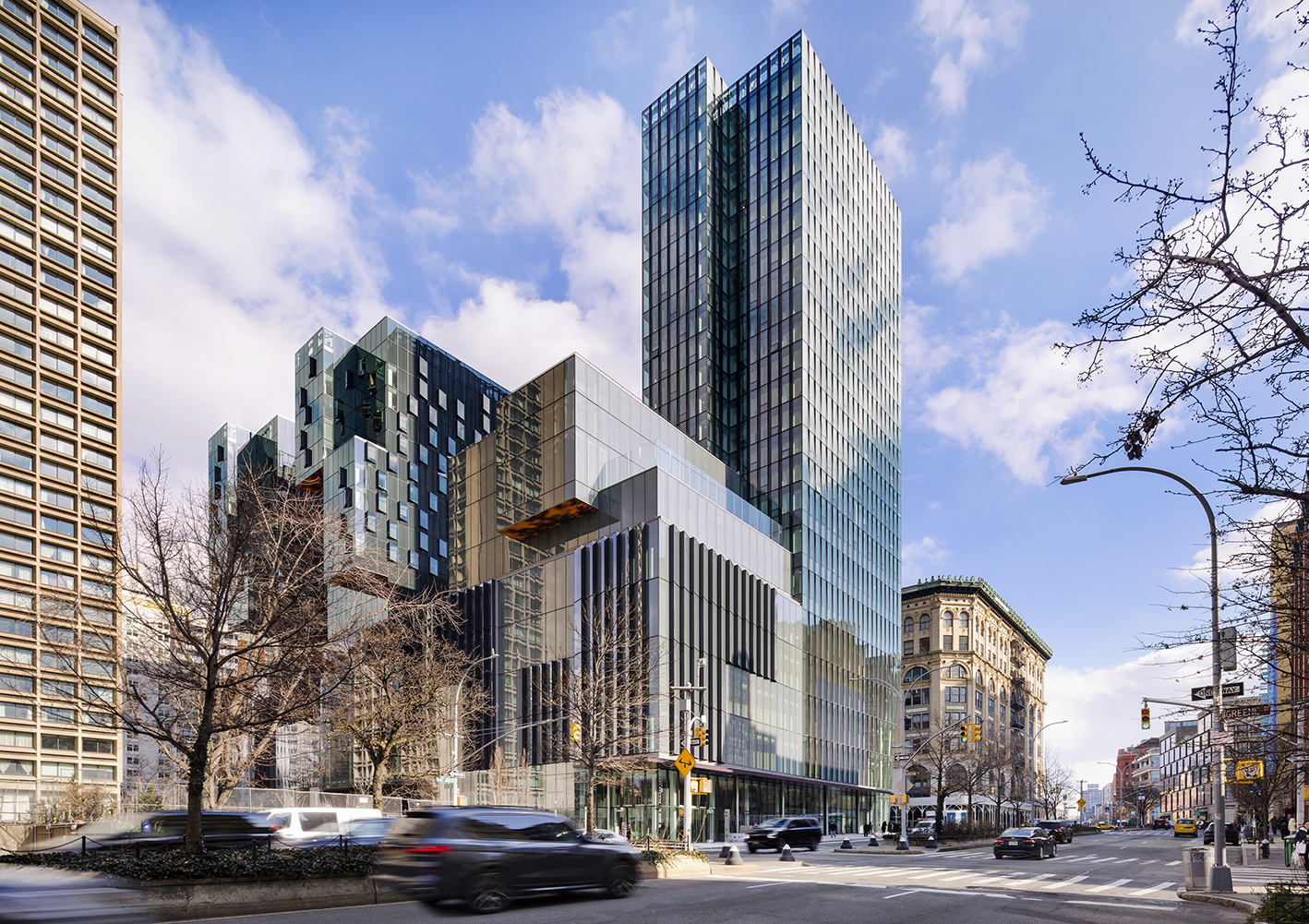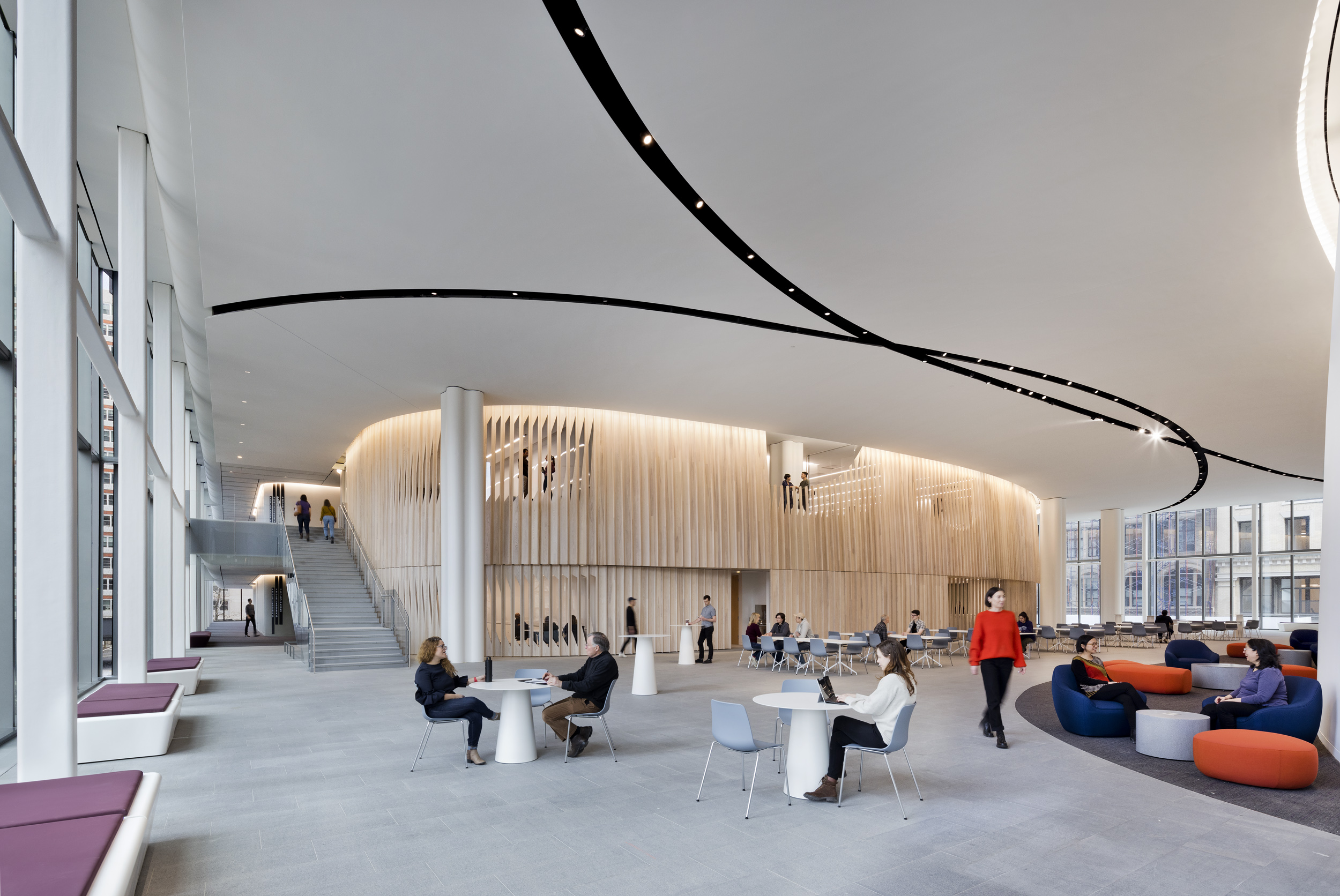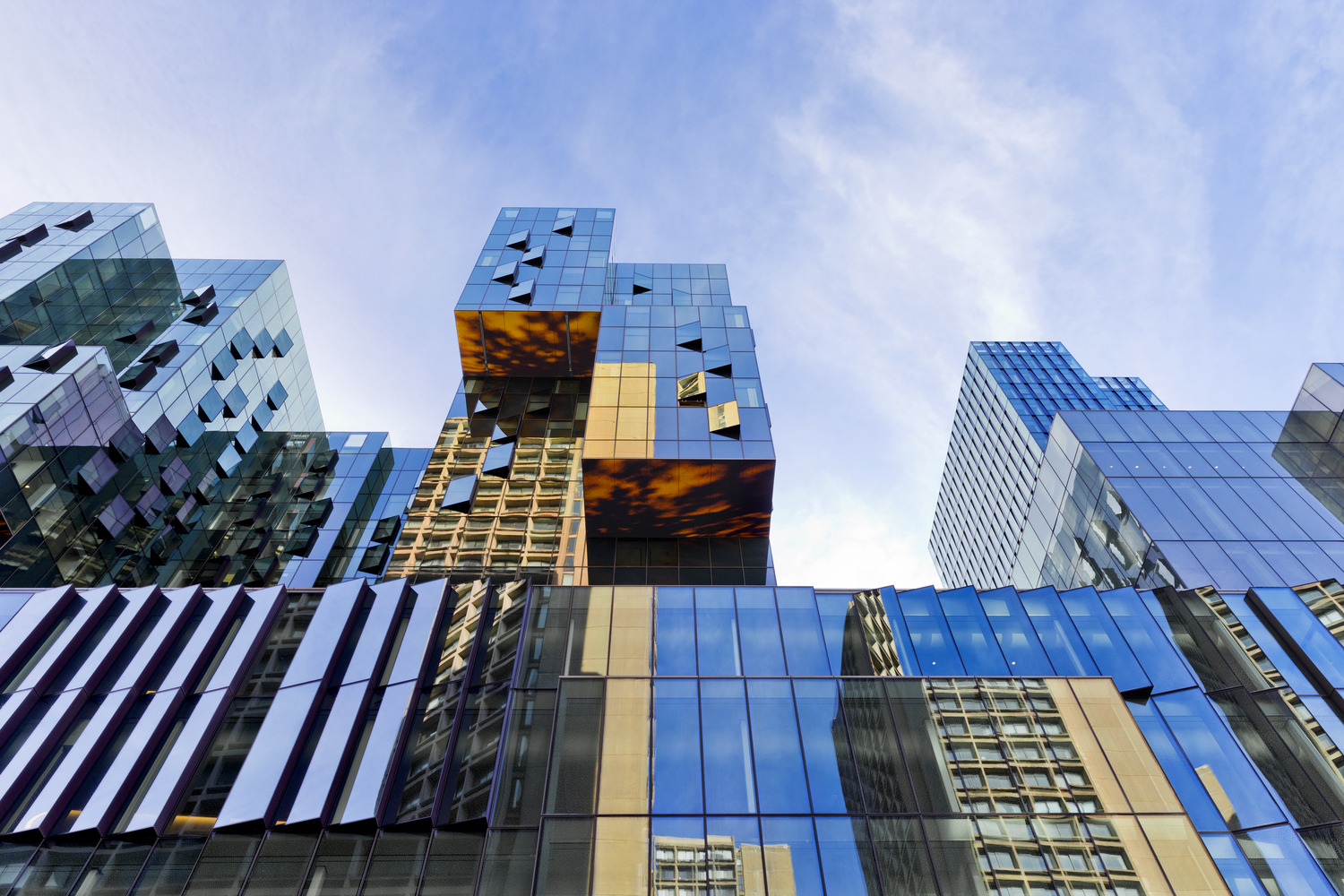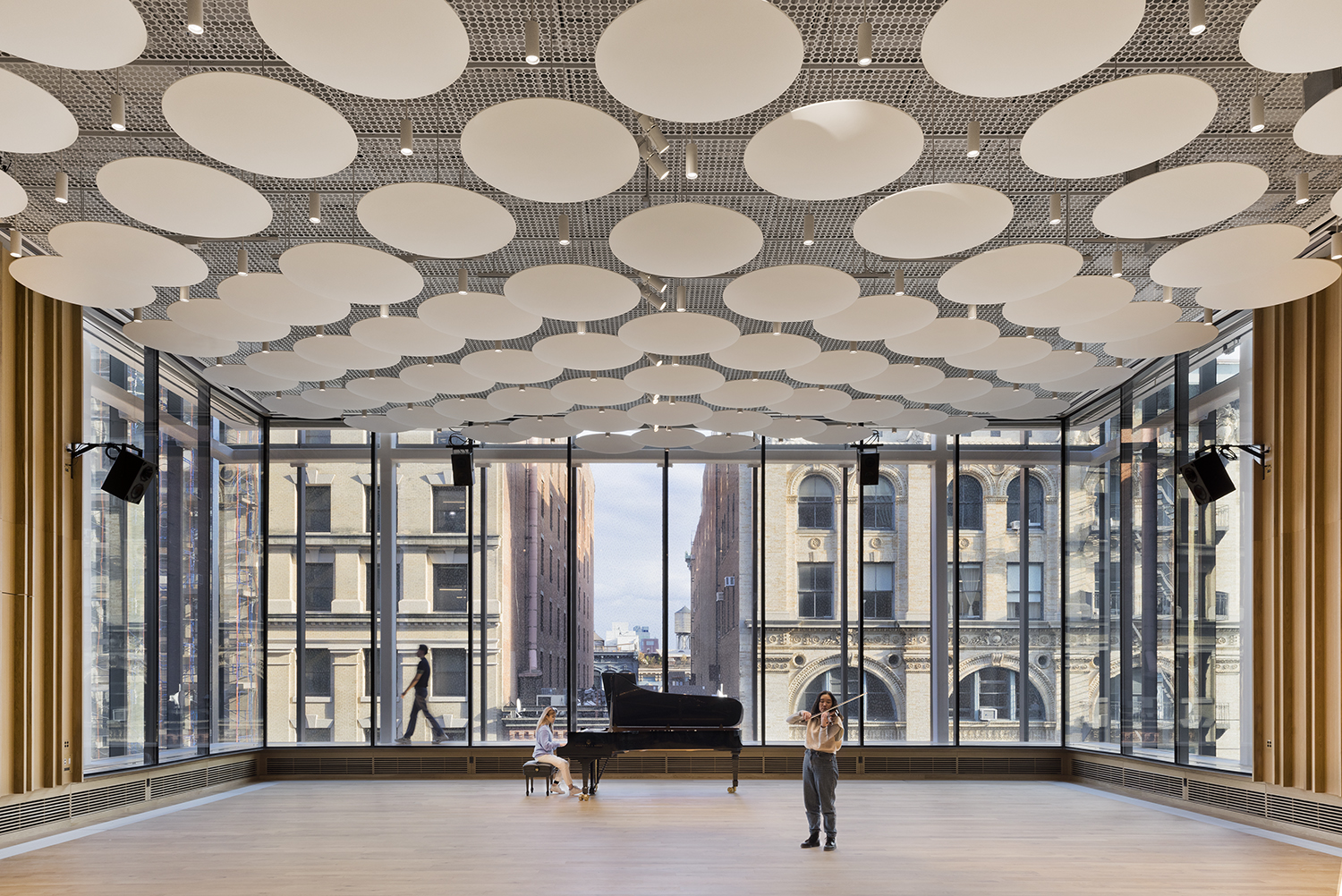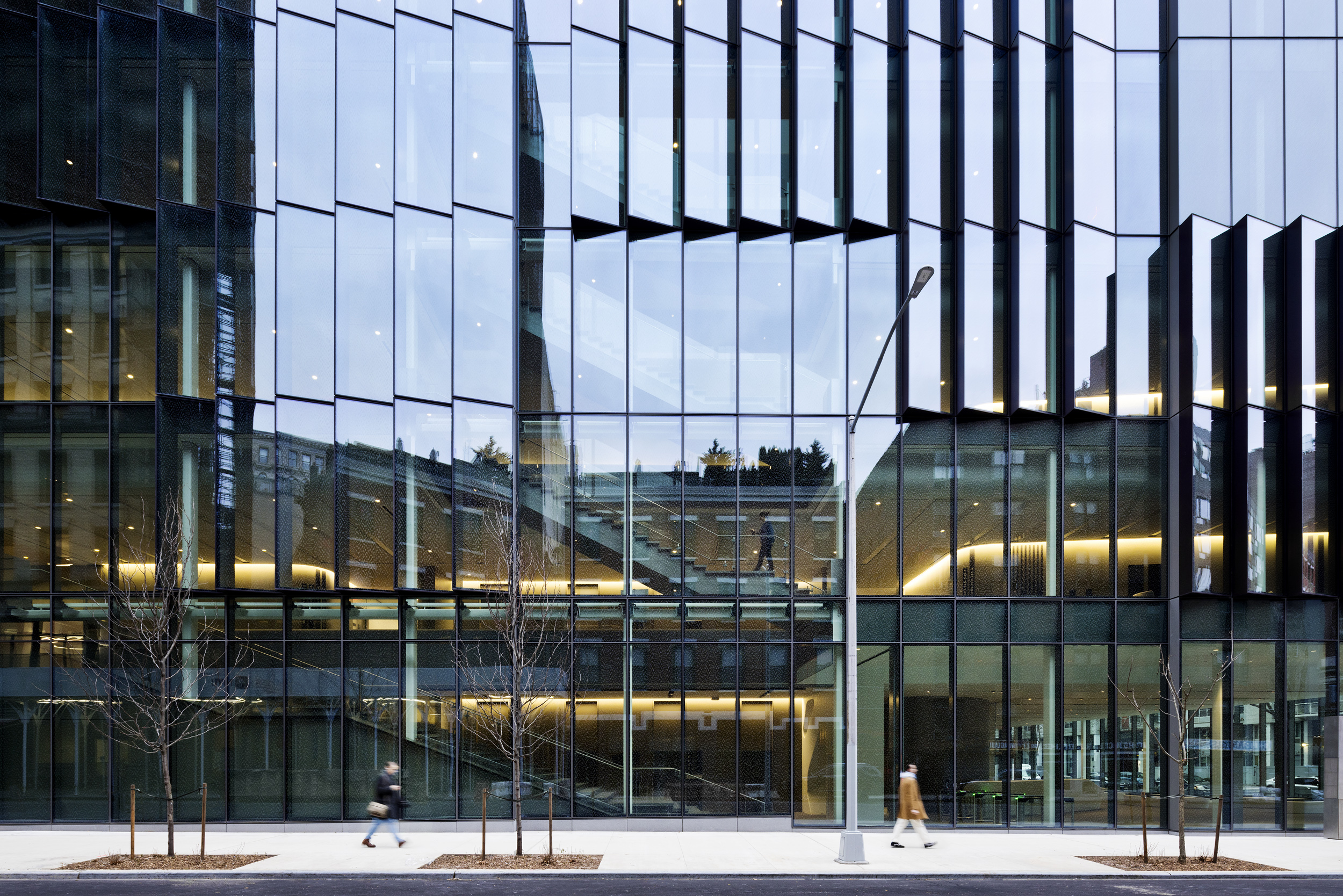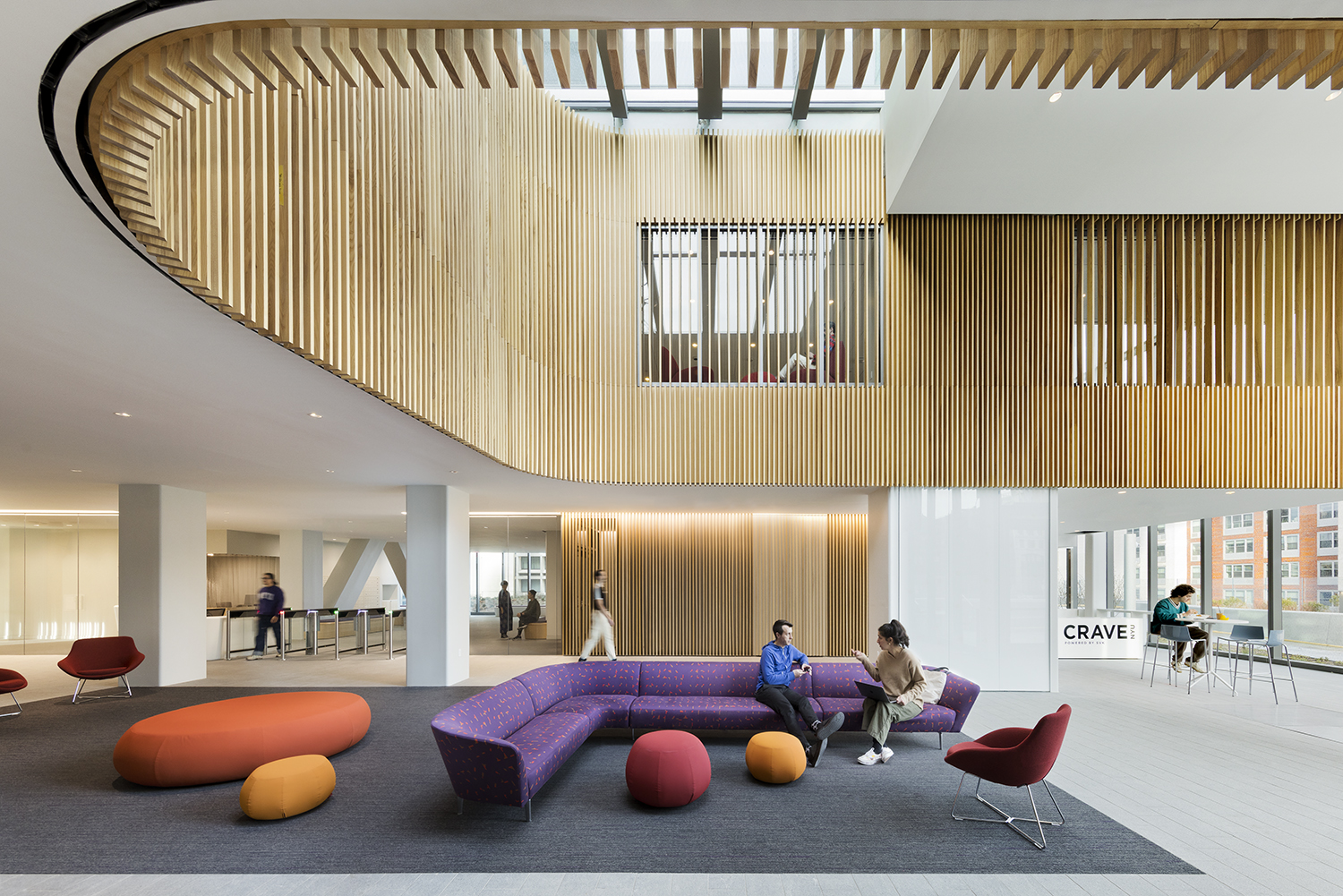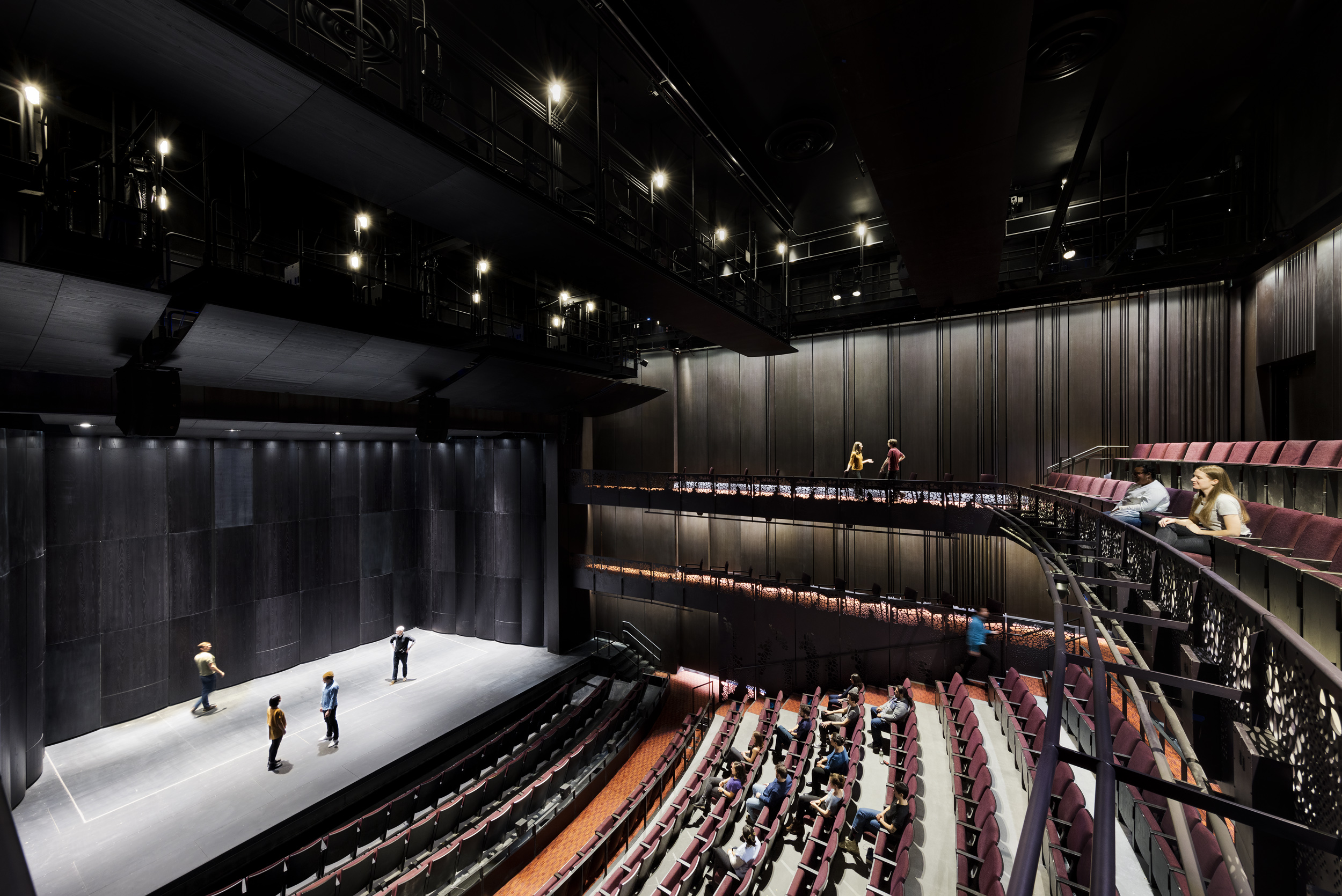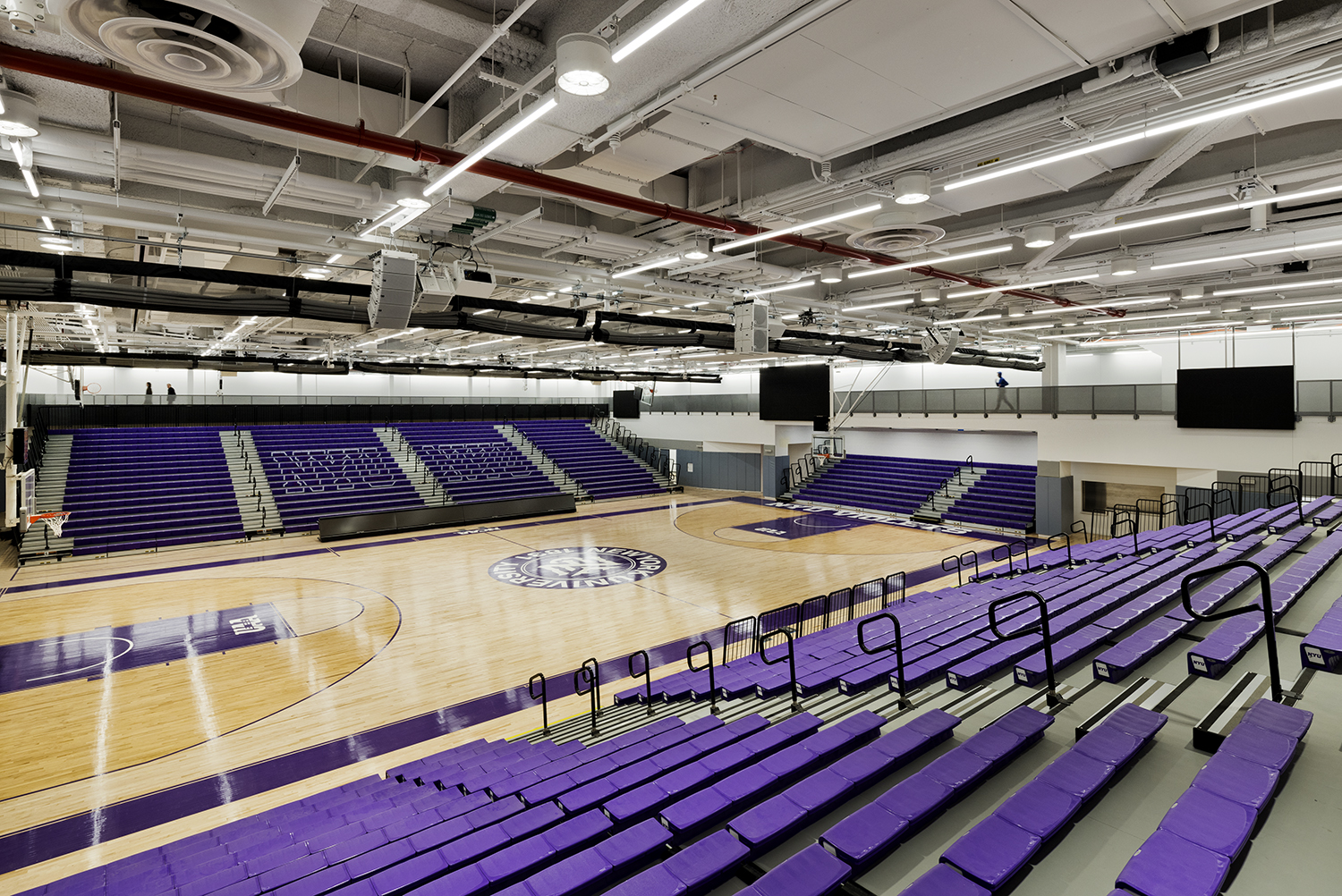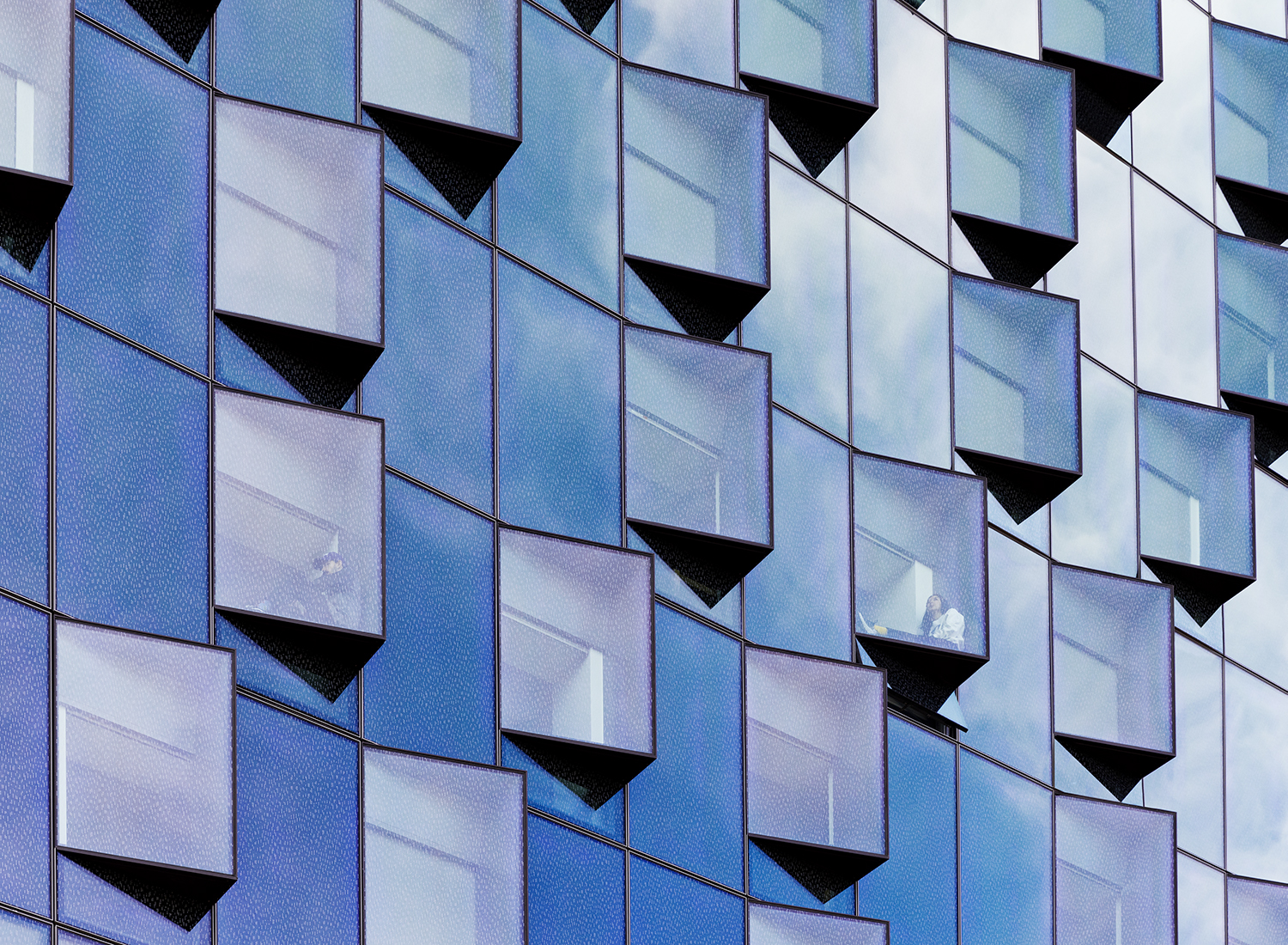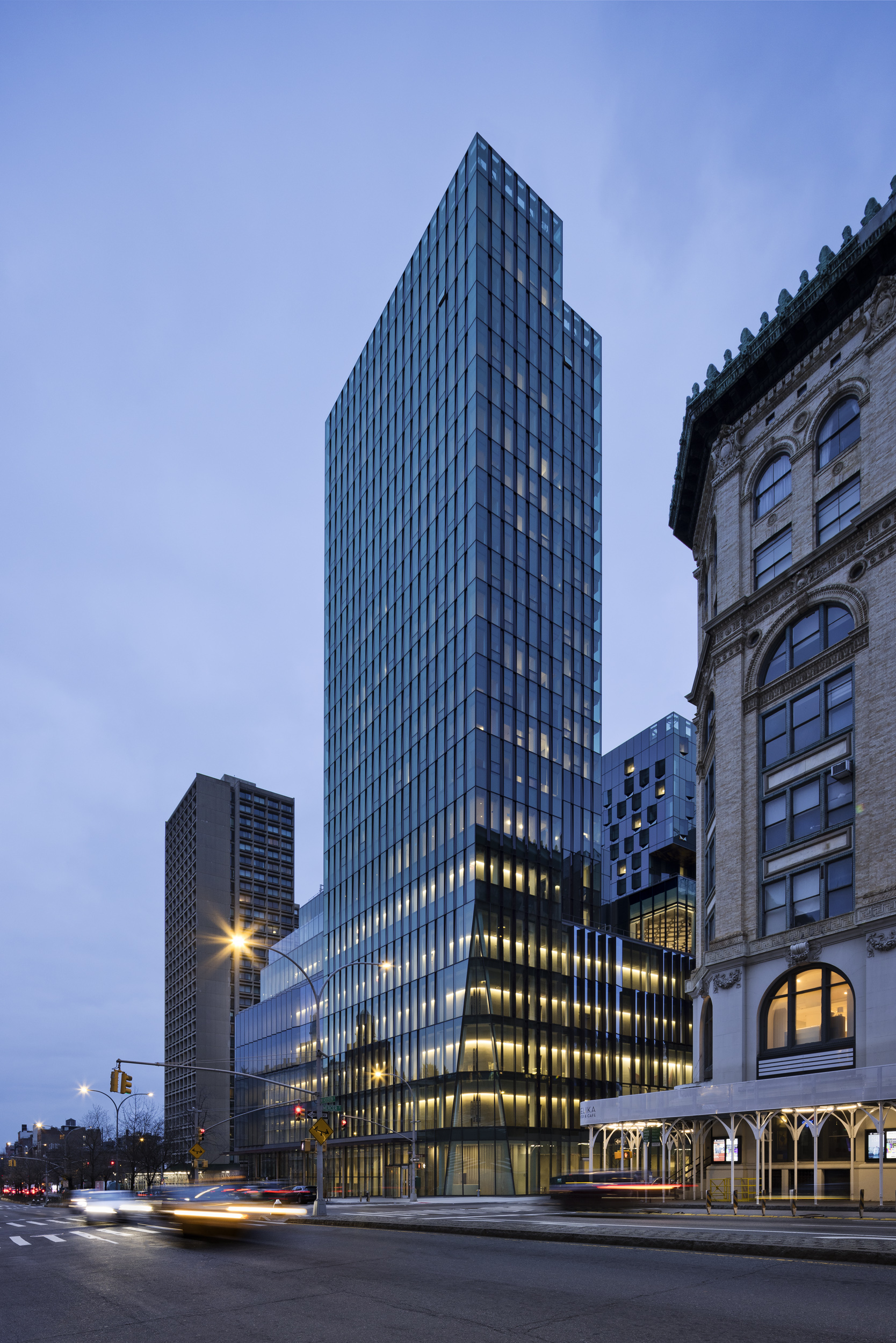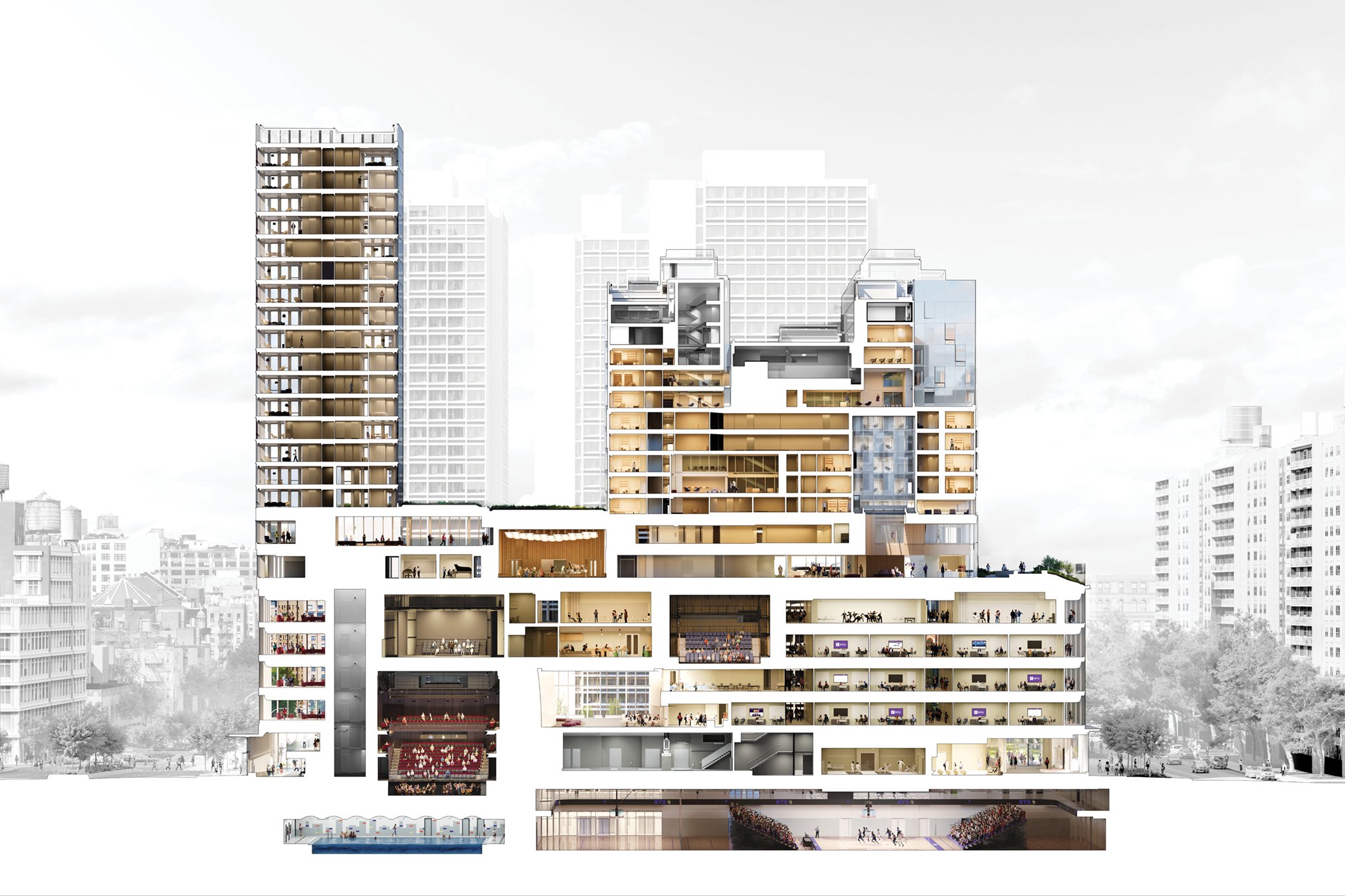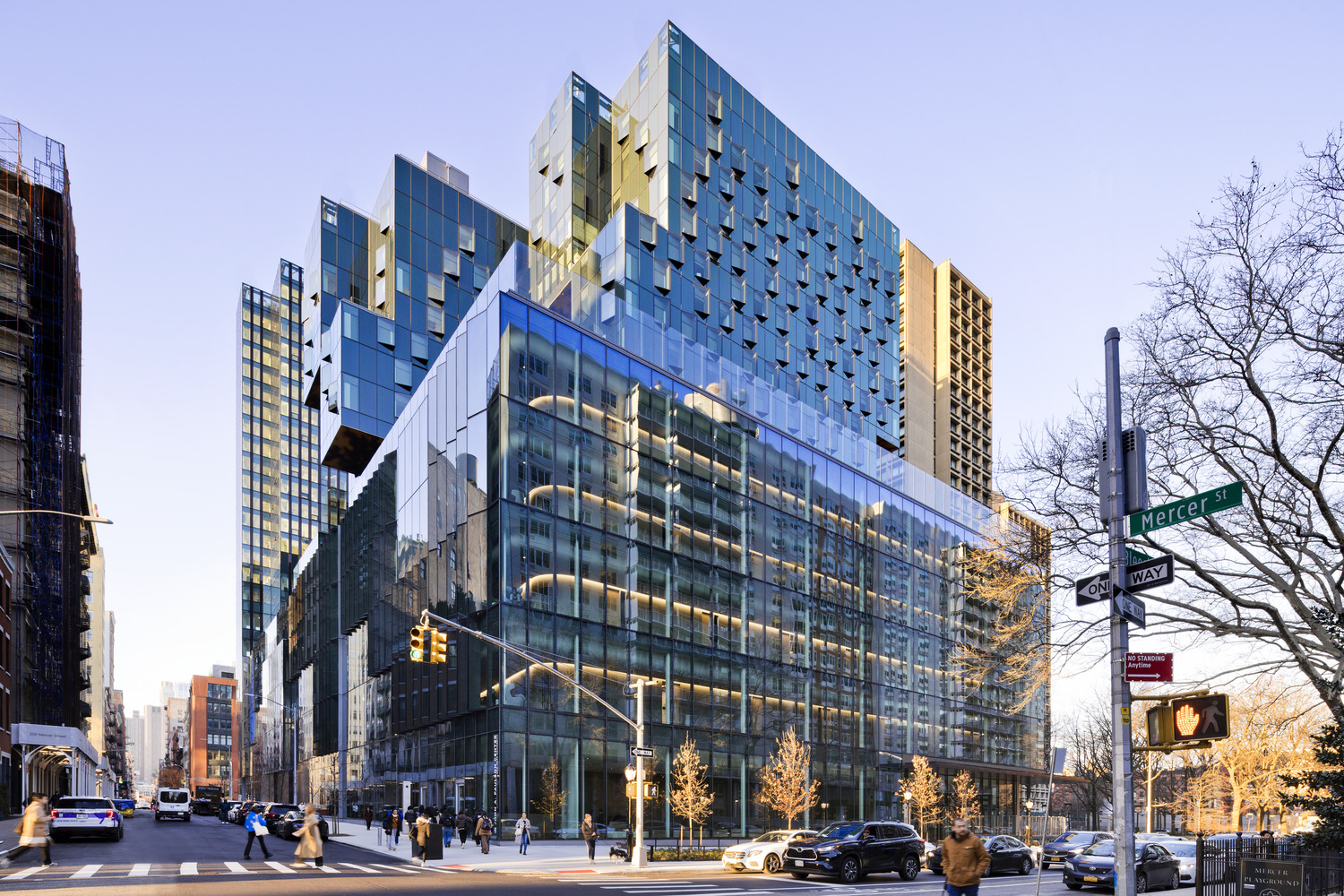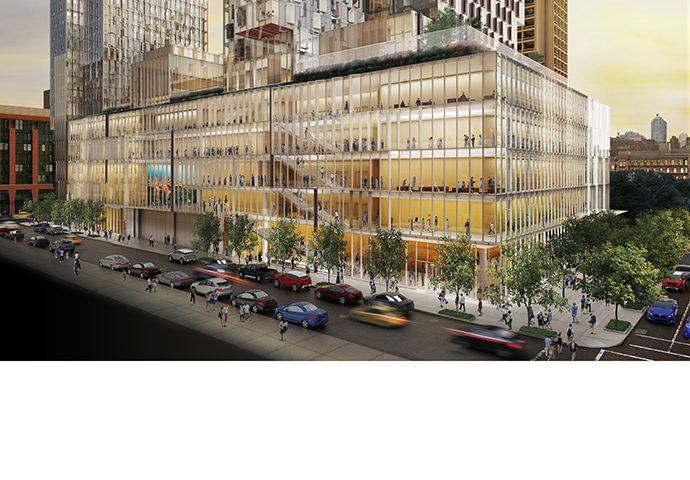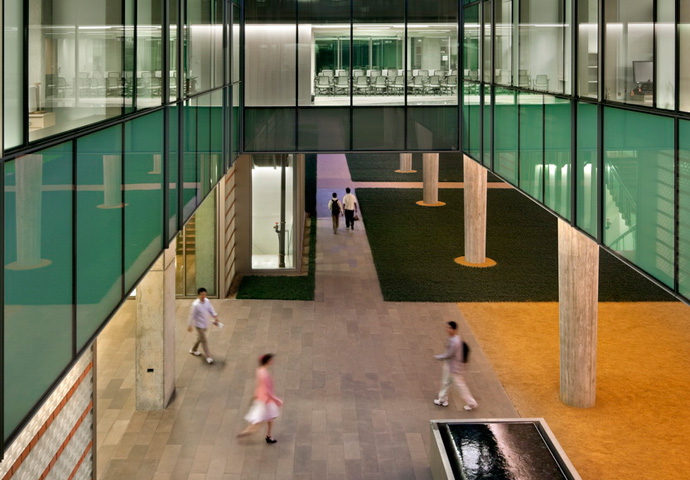The Paulson Center provides academic, athletic, and housing for students and faculty at the edge of New York University's distributed urban campus. © Connie Zhou / JBSA
How can a multi-use building in New York City embody the spirit of a university and foster new ways to connect, work, and learn?
Centered around Manhattan's Washington Square Park, New York University's campus exists within a dense mix of traditional and modern buildings. Because of this urban campus, the school's various programs are dispersed across a number of separate buildings, each functioning with far less space than the University's peer institutions. Based on University planning studies, NYU needed to increase space for faculty and students to strengthen its academic culture. In addition to more classrooms, the University needed specialized space for its renowned performing arts programs, student and faculty housing, and athletic facilities. Working in collaboration with Davis Brody Bond, KieranTimberlake designed a building on the campus's southern edge that would graciously accommodate NYU's academic needs, embody its character and vibrancy, and offer new ways for the University to engage with its own community and the larger city of New York.
FOSTERING CONNECTIONS
Designed to optimize interactions between diverse student groups and academic disciplines, the LEED Gold-certified John A. Paulson Center at 181 Mercer includes classrooms, informal study spaces, performing arts theaters, rehearsal and practice rooms, varsity sports arenas, a recreational sports gymnasium, and a café, as well as faculty and first-year student housing. Each of these spaces is organized into unique “neighborhoods,” all of which are connected to an open and expansive commons that provides collaborative study, meeting, and gathering places.
A cross-section along Mercer Street shows the Paulson Center's spaces for teaching, learning, performing, rehearsing, practicing, studying, and collaborating, as well as a new gym and student and faculty housing. Illustration by KieranTimberlake
The Paulson Center's design takes advantage of its 360-degree relationship with the neighborhood by placing hallway circulation along its transparent perimeter and classroom and instructional spaces towards the center of the building. This reversal of conventional building organization provides faculty and students with one-of-a-kind city views while also giving outside observers a sense of the building's activity. This distinct layout, along with the building's prominent stairways, creates a sense of openness and connection by encouraging the casual encounters and intellectual exchanges that are at the center of the NYU experience. Outside, the design continues to develop connections by creating a new pedestrian “greenway” that links two major thoroughfares along the building's west side.
EMPHASIZING SUSTAINABILITY
Designed in support of the NYU Climate Action Plan, the Paulson Center is committed to environmental responsibility and takes advantage of sustainable design strategies that reduce greenhouse gas emissions, water consumption, and the amount of waste generated during both construction and everyday use. The building is connected to NYU's existing Co-Generation (CoGen) facility, a highly efficient, natural-gas-fueled power plant that simultaneously produces electricity, heat, and chilled water. In contrast to conventional energy sources, the CoGen plant substantially reduces not only the amount of resources used, but also greenhouse gas emissions and air pollutants.
© Connie Zhou / JBSA
In addition to using cleaner energy, the building's design itself minimizes its carbon footprint. The transparent facade and its use of glare-reducing strategies, for example, lower energy requirements by allowing the building to rely primarily on natural light during the day. Similarly, the Paulson Center's series of green roofs and outdoor terraces naturally cool the building and its surrounding landscape while also helping to manage rainwater runoff. In addition to creating valuable outdoor green space that will serve as a kind of elevated campus quad, these roofs and terraces are an attractive amenity for the building's neighbors who are able to view the landscape from above.
By bringing together an eclectic mix of spaces into a single building designed to encourage connections and community engagement, the Paulson Center builds a multidisciplinary community that will define the University's creative and academic diversity.
For more information about the Paulson Center including interviews with the design team, visit NYU's Paulson Center website. You can access the Project Press Kit here.


